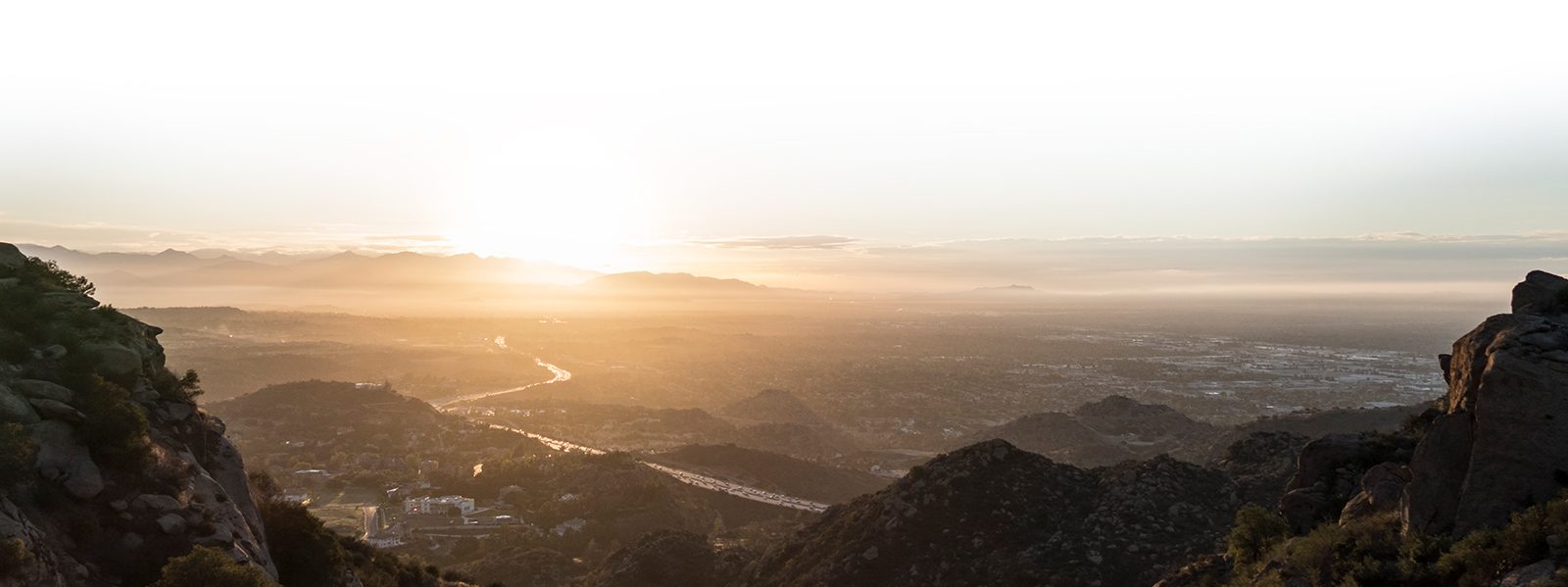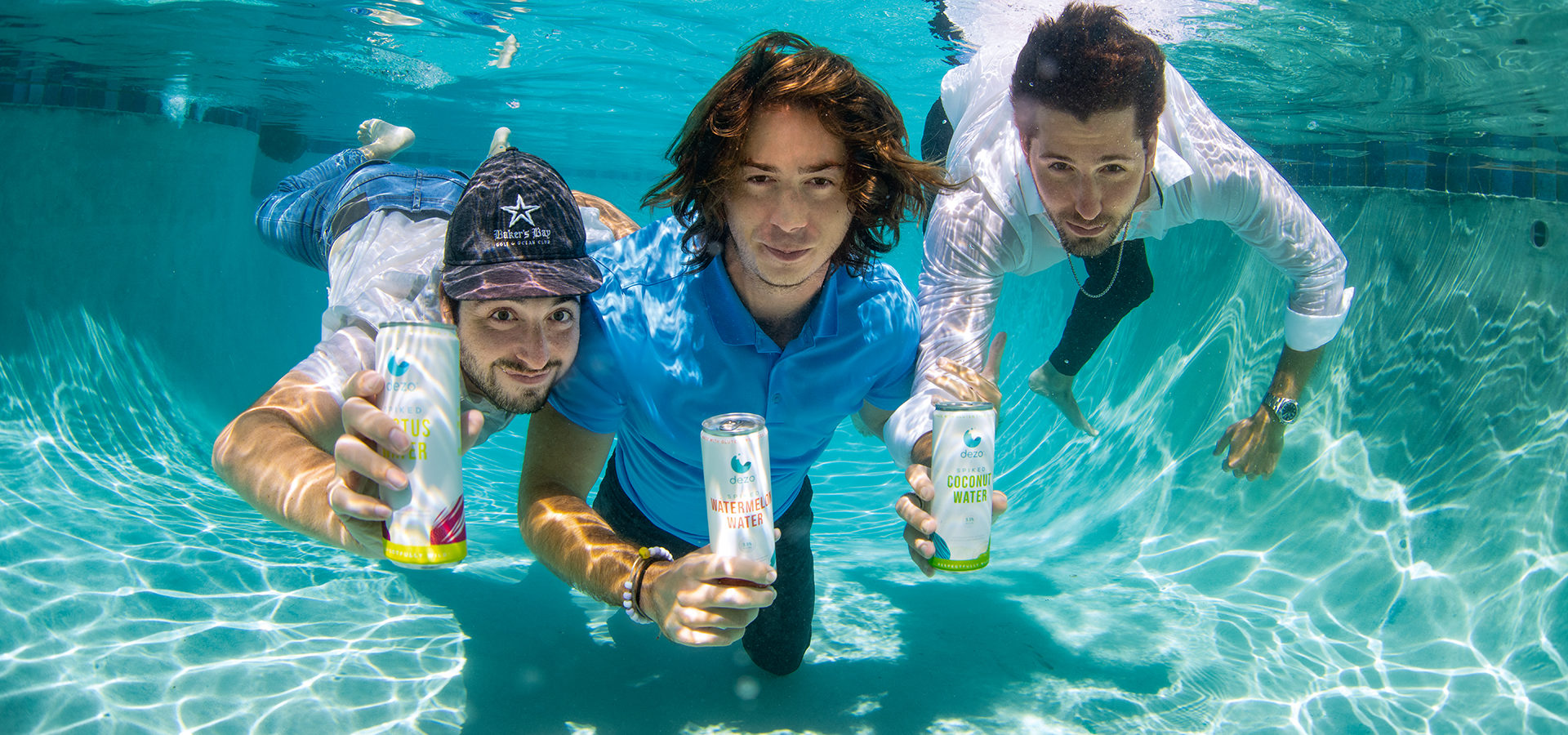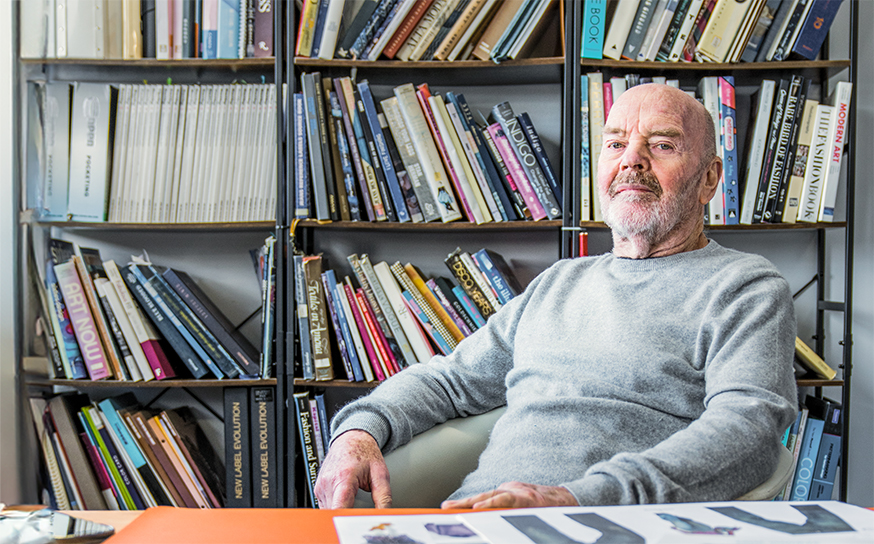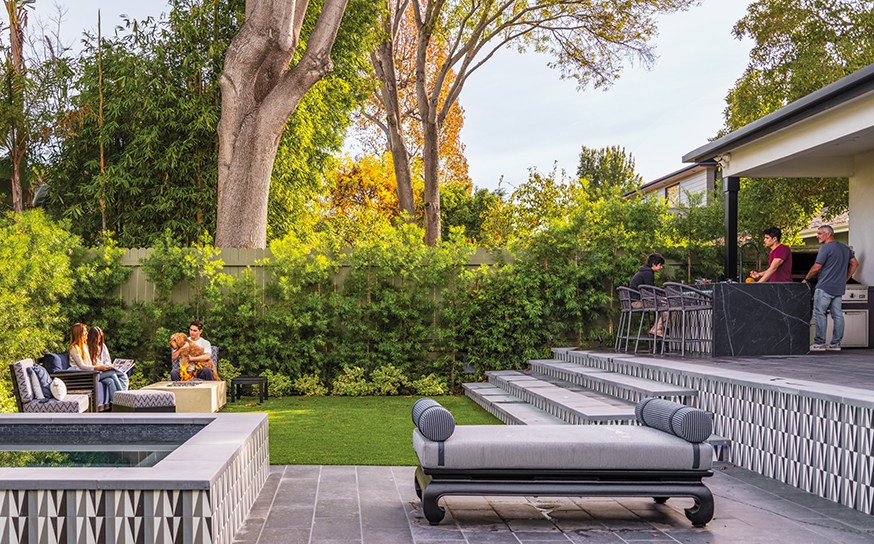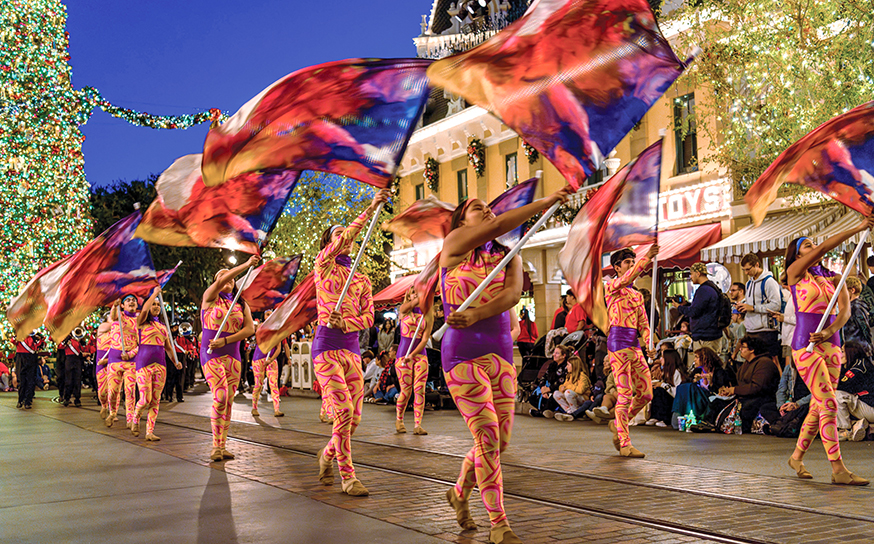Meet the Founders of the New Canned Cocktail Dezo
More health. Less hangover.
-
CategoryEat & Drink, People
-
Written byLinda Grasso
-
Photographed byKat Mueller
When it comes to college drinking, we can all agree: Not much good comes from it. However, that is not the case with Tomas Crowe’s partying at Tulane University during his senior year. One Saturday morning in the spring of 2018, he was riding in the car with his fraternity brother Tim Demirjian.
Recalls Tomas, now 25: “I was so hung over. I said, ‘Listen, man, I can’t keep doing this, drinking like this and feeling hung over the entire next day. There has to be a better way.’”
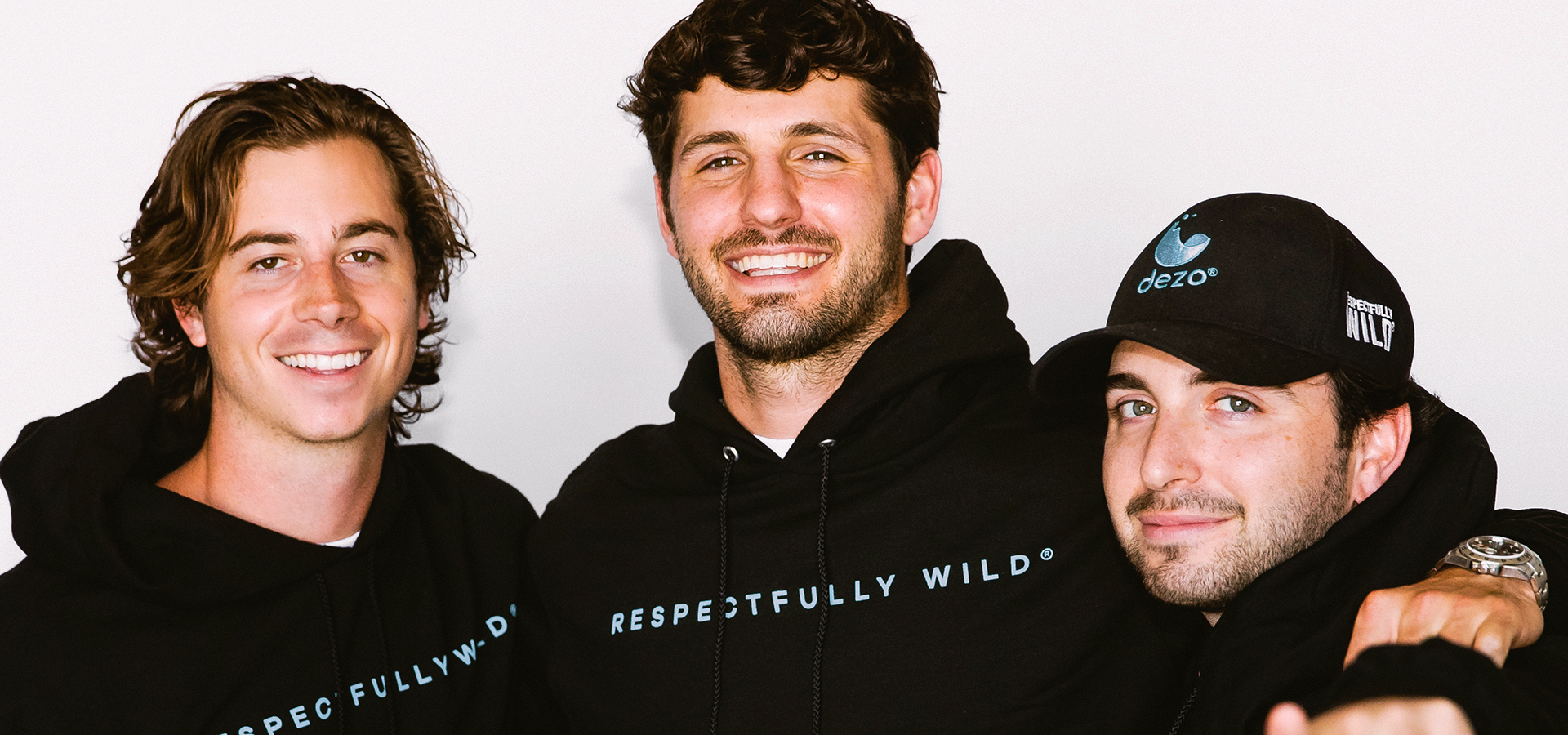
The two business majors began a conversation about how to make an alcoholic beverage that tasted good but was somehow not quite as bad for you.
“We wanted a way to enjoy the drinking experience but wondered if there was a way to use revitalizing ingredients that could mitigate how you feel the next day—so that you don’t have to sacrifice your productivity for your socializing,” Tim, 26, explains.
The two put their excitement aside as graduation festivities got underway. Tomas, a Notre Dame High School graduate, moved back home to Sherman Oaks. Tim moved to LA, sharing an apartment with Marc Kessler, a University of Richmond graduate whom he grew up with in Boston. Marc’s family owns Boston’s historic Bell in Hand Tavern and has run it for generations.
“Marc starts telling me about this coconut-water-based beverage cocktail that he was making back at his family’s bar. It has electrolytes and antioxidants, so you hydrate, but it’s mixed with gluten-free vodka. Immediately a light bulb went off in my head and I said, ‘Hey, you got to meet my friend Tomas.’”
This Can Happen
The trio began experimenting. “We had like a bunch of plastic cups in the kitchen and just played mixologists for a couple hours, and we got to the point where one of them tasted really good. We all looked at each other, like, let’s see how far we can take it,” says Tim.
For the next five months, they experimented and researched in their spare time. They brought on a mentor who ran wholesale distribution for Anheuser-Busch. They learned everything they could about the canned alcoholic beverage industry, marketing, and branding, all while trying to come up with the right formulation. The goal was to create a ready-to-drink beverage with electrolytes and no added sugar or preservatives.
“The first couple of iterations were absolutely disgusting and we were a little discouraged,” recalls Tomas. “Then there was one where the flavor profile perfectly matched what we envisioned. We passed it around and we all looked at each other and said, oh my god, this is really good. We could sell this right now. Like this can happen!”
Tomas tested out the first formulation, made with coconut water, with his Notre Dame alumni buddies. “We would invite them and random girls we knew to Tim’s parents’ apartment and do blind tasting tests. I think our friends have been the biggest focus group that we’ve had to date,” he says.
Two more drinks were created with watermelon and cactus water, and the product name was chosen. Dezo is a riff off the French des eau, which means “of the waters.” The tagline: “Respectfully Wild.”
Up until that point, Dezo had been self-funded. “I had a few thousands in my bank account and I was like, this is going to last me six months, max. We need to figure this out quickly. We all quit our jobs, knowing that if we didn’t raise money in that six-month period, we’d be screwed,” Tomas remembers.
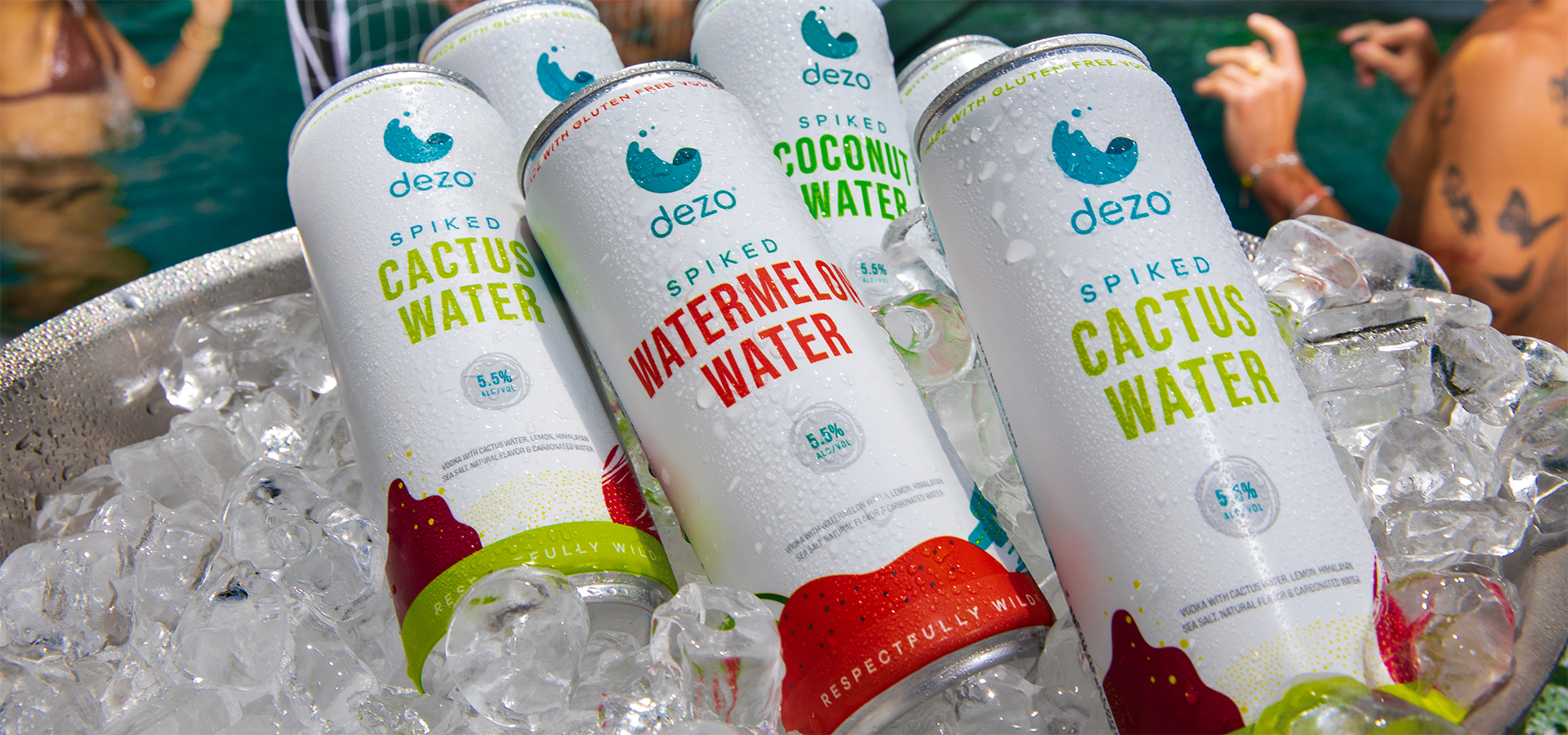
Out to Launch
To launch the product, the trio knew they needed some serious capital. They took a trip to Boston and tapped into Marc’s family network. From the get-go, his family thought it was a great idea. In fact, it was his mom’s reaction that suggested the demographics they had in mind were too limited.
“She absolutely loved it, and to us that was an indication that this wasn’t just a drink for partying 20-somethings,” Marc, 27, quips.
They also went to New York and met with a J.P. Morgan investor who put in $50,000. Ultimately they raised $750,000, and after some initial success were able to secure a major distributor.
The launch was planned for April 2020. Then COVID hit, halting everything. Tomas admits it was both a blessing and a curse.
“COVID gave us a chance to digest our launch strategy, focus more on digital, and get our direct-to-consumer online store going. Being bullish on digital and direct-to-consumer helped us to get some initial sales volume,” he explains.
Dezo officially launched in August 2020, but the first production run was a disaster; the cans leaked due to excessive salt. With orders hanging in the balance, they were forced to change the formula just four weeks from going live.
Finally sales started coming in, and the founders were able to raise another $800,000, mostly from their initial investors.
•••
Recycling Success
Currently Dezo is available in Massachusetts and California and it is expected to be available in Nevada by year’s end. In SoCal, it’s being carried by liquor stores, most Ralphs, and the upscale nightspots owned by LA hospitality company H. Wood Group, which include Bootsy Bellows and The Nice Guy.
Competition in the canned alcoholic beverage industry is fierce, and mammoth companies like Anheuser-Busch continue to jump into the marketplace. Still, the guys are undaunted.
“Today I believe we still have the highest quality product. Sure, there have been bigger players coming to the market with some innovation—seltzers and things like that. But through all of it, we still have the best quality product,” Marc states.
Aspirations are big. “Over the next few years we want Dezo to be a household name just like White Claw, Spindrift, LaCroix. We want Dezo across 50 states,” Tim says.
•••
Formulating the Future
When it comes to the day-to-day, responsibilities are divvied up. Tim focuses on marketing, fundraising and strategic partnerships. Tomas concentrates on digital marketing initiatives and production. Marc handles account relations and strategic partnerships with entertainment groups.
Today they are focused on continuing sales momentum while staying balanced as young entrepreneurs.
“There’s been tons of crazy excitement, but also some valleys. And then there is the fear of failure. We have 30+ investors that we’ve looked in the eyes and told we are going to make this investment turn into something. They include family members and friends—people we have real connections to and relationships with,” says Tomas.
“It’s been one hell of a ride,” Marc concurs. “There have been times when we’ve felt cash-strapped and things weren’t working correctly and we didn’t have answers. I believe that being able to stay focused and collected through the roller-coaster that is building start-ups is one of the most important skills. And I believe this ride is just getting started.”
Architect May Sung Comes to The Rescue on a Studio City Reno Gone Wild
In the right hands…finally!
Join the Valley Community
